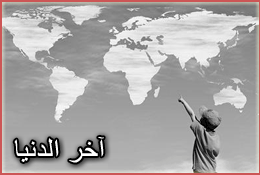Beginner - Levantine: Ends of the Earth

The phrase 'The ends of the earth' is used to indicate the furthest reach of man's dominion, as opposed to the heavens. It is usually used these days to mean 'a very long way away'. Join Sierra & Elias as they teach you how to say it in the Lebanese dialect along with other useful vocabulary.


As usual, your lesson was well-prepared and stimulating. Would the adverbial in the final sentence be acceptable in Modern Standard Arabic if “dunya” (ﺪﻨﻴﺎ
“At the ends of the earth” is not a very common expression in English. “The ends of the earth” is normally used alone (e.g. as a book title) or with a verb of movement (e.g. go to the ends of the earth, follow sb to the ends of the earth, pursue sb to the ends of the earth). Since the Arabic expression under discussion literally means “at the extremity of the world”, you probably opted for “at the ends of the earth” in order to render the structure of the Arabic expression more transparent.
There are several English expressions which would sound more natural in this context, e.g. “miles from anywhere”, “in the middle of nowhere” or “in the back of beyond”. There are also regional variants which are employed in the United States and in New Zealand.
The French equivalents are heavily context-dependent: “au diable”, “au diable vauvert”, “dans un trou perdu”, “dans un endroit perdu”, “dans un endroit complètement isolé”, “en pleine cambrousse”. “Au diable vauvert” is somewhat literary. “En pleine cambrousse”, which is colloquial, would fit the bill here.
In German you could say “jwd”. This abbreviation stands for “janz weit draußen”. In the first word “j” has been substituted for “g”. This shows that the expression originated in Berlin, where “g” is pronounced like “j”. (The German “g” sounds like the “g” in Engl. “go”, while the “j” in the affirmative particle "ja" is pronounced like the initial letter in Arab. ﻴﻜﻤﻞ (yukmil).
“Am Arsch der Welt” (literally “at the arse of the world”) is also widely used, but it is only appropriate in conversational exchanges between people who know each other well. You would not say this to a stranger who has stopped you in the street to ask you where the nearest DIY superstore is.
“Am Ende der Welt” (literally “at the end of the world”) is yet another current variant and is often used in newspaper articles. It could be employed in a polite conversation with a stranger.